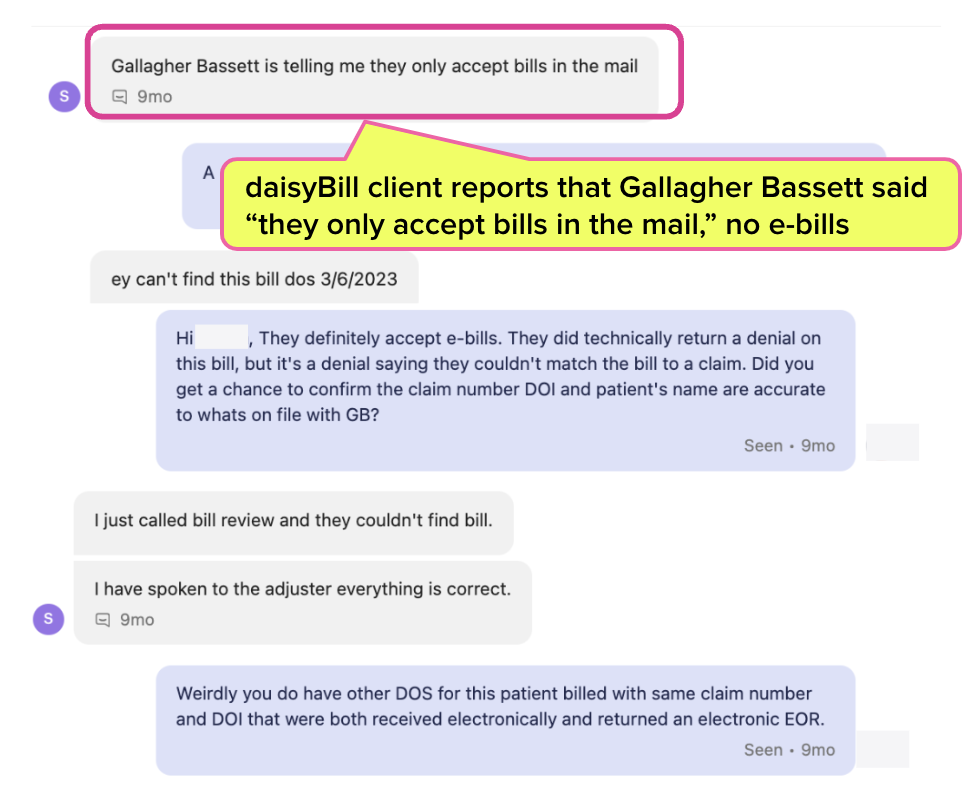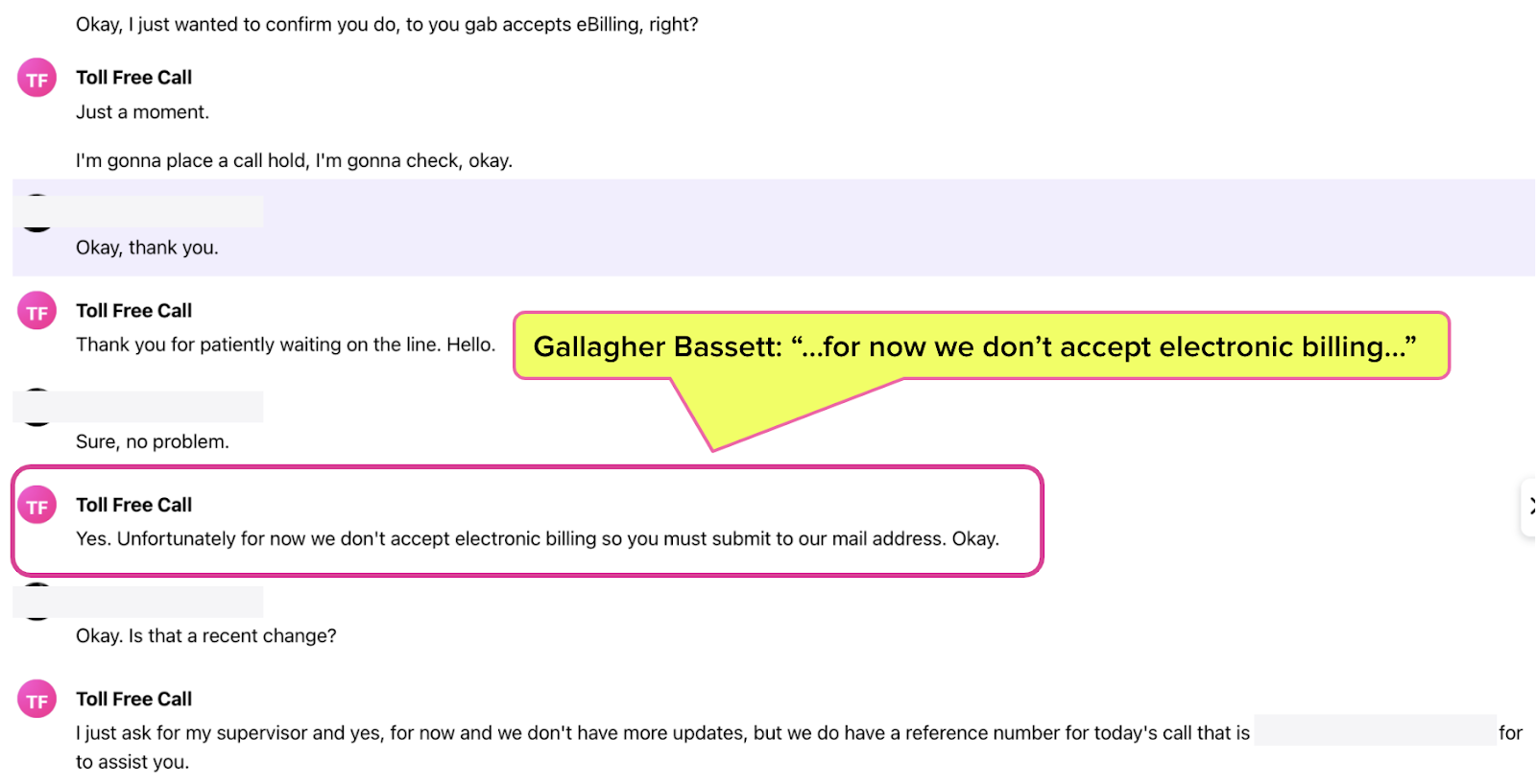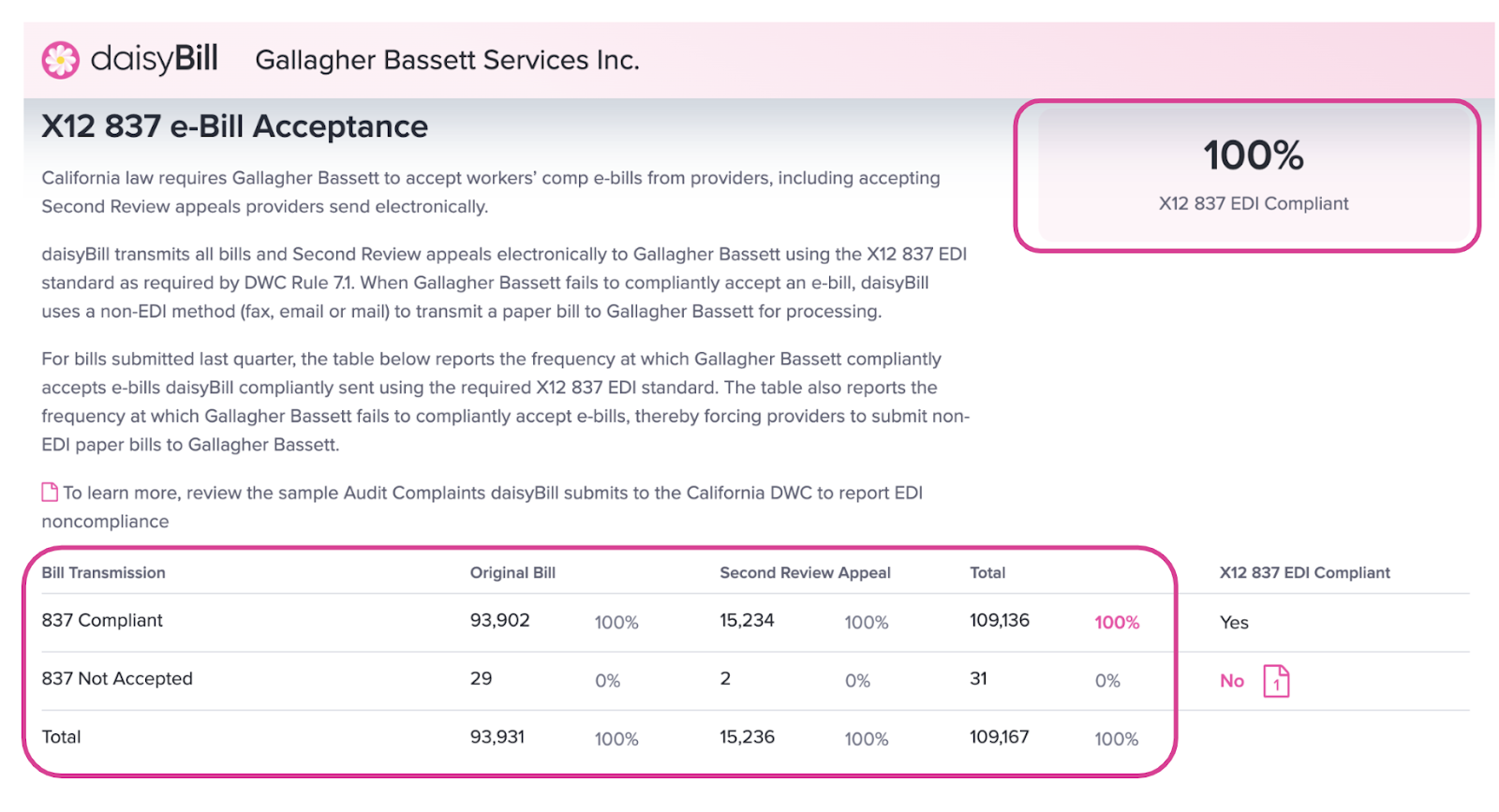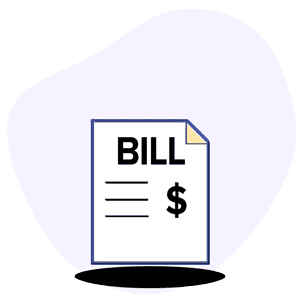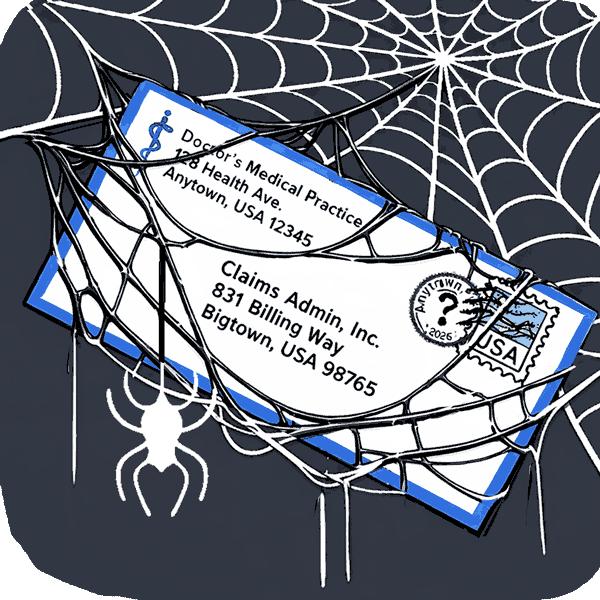Gallagher Bassett Claims Not to Accept e-Bills

In California and other states, claims administrators are required by law to accept electronic bills for the treatment of injured workers. Yet providers repeatedly report to daisyBill that Gallagher Bassett incorrectly claims not to accept e-bills.
Recently, a Gallagher Bassett representative offered one of our daisyCollect agents the same misinformation.
To be absolutely clear: Gallagher Bassett accepts e-bills. In fact, the Third-Party Administrator (TPA) is historically compliant with e-bill acceptance. So why are Gallagher Bassett representatives claiming otherwise?
Gallagher Bassett’s Misinformation
As the California Division of Workers’ Compensation (DWC) makes clear on its website, accepting e-bills is mandatory, not optional, for claims administrators (emphasis ours):
“By statute, claims administrators are required to accept electronic medical treatment bills. They may develop their own capacity to accept electronic bills or may contract with a vendor to perform the function. Participation in e-billing is optional for medical providers.”
Yet, in the screenshot from a client’s chat with daisyBill support below, a daisyBill client reports that a Gallagher Bassett representative stated that all bills must be sent through the mail.
Having heard similar reports, a daisyCollect agent contacted Gallagher Bassett to investigate. Astoundingly, a Gallagher Bassett representative made the same claim: that the TPA only accepts bills via mail.
When asked if the mail-only policy was a recent change, the Gallagher Bassett rep claimed “I just asked my supervisor and yes, for now and we don’t have more updates…”
Come again?
Gallagher Bassett Accepts e-Bills
Per California Labor Code Section 4603.4, all claims administrators must accept e-bills. If the claims administrator lacks the technology to do so on their own, they may utilize a clearinghouse to accept e-bills on their behalf (as almost every claims administrator does).
Gallagher Bassett is compliant with this legal requirement — very compliant, actually. The TPA accepts e-bills in the required X12 837 file format from our providers at a statistical rate of 100%, as shown on its Claims Administrator Directory page (below).
In fact, over 365 days, Gallagher Bassett failed to accept only 29 out of 93,931 e-bills.
We cannot say why these representatives tell providers the opposite of the truth, especially since the untrue claim inaccurately suggests that Gallagher Bassett is out of compliance with California law and regulations — though it should be noted that payment for e-bills is due in 15 days, as opposed to the 45 to 60-day deadline for mailed bills.
Apparently, it’s just another example of the impunity with which claims administrators can ignore (or claim to ignore) state laws and regulations, even when the benefit of doing so is not immediately apparent.
Regardless, it is unacceptable that providers seeking information on submitted e-bills are being given this obvious run-around. Gallagher Bassett must and does accept e-bills. If the TPA or its clearinghouse loses track of those e-bills or fails to pay timely, it is Gallagher Bassett’s responsibility to resolve the problem.
Let the experts handle your workers’ comp billing. daisyCollect pros use advanced software and years of experience to protect your practice. Learn more below:
LEARN MORE
DaisyBill provides content as an insightful service to its readers and clients. It does not offer legal advice and cannot guarantee the accuracy or suitability of its content for a particular purpose.
